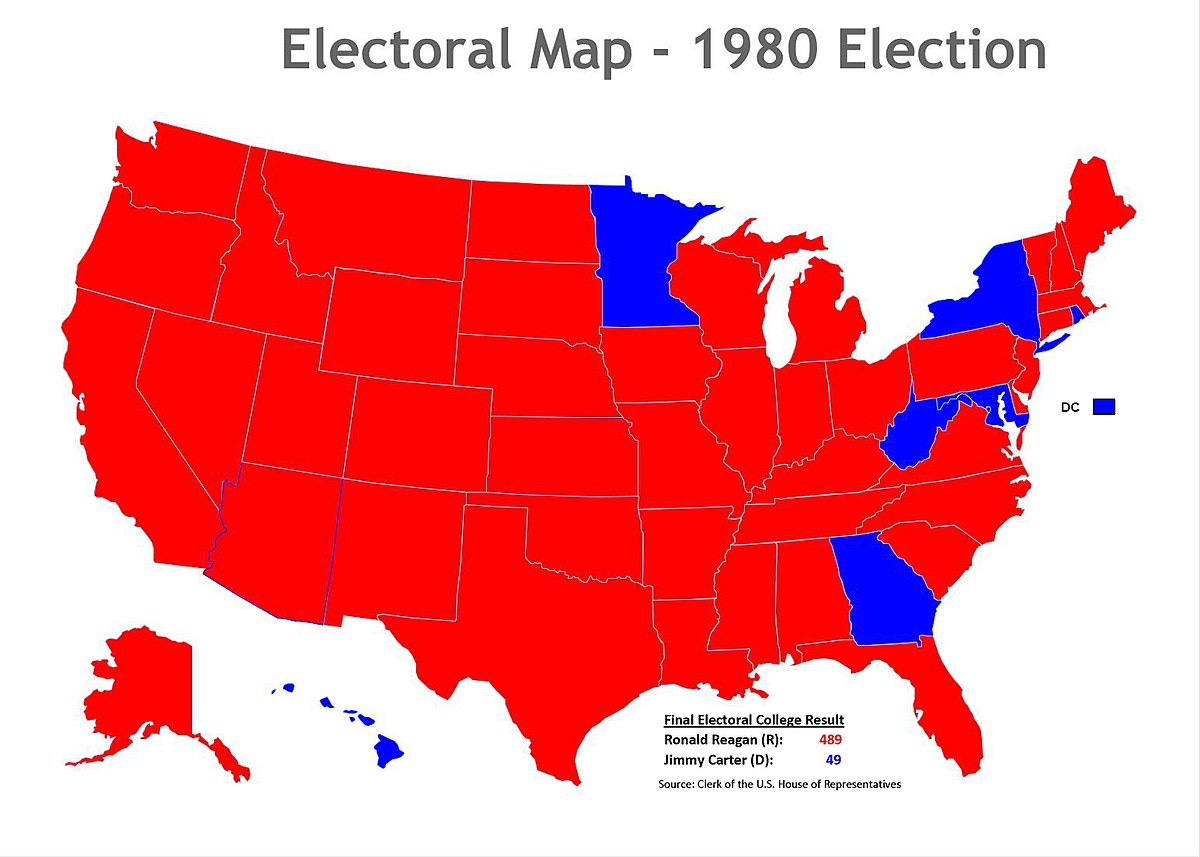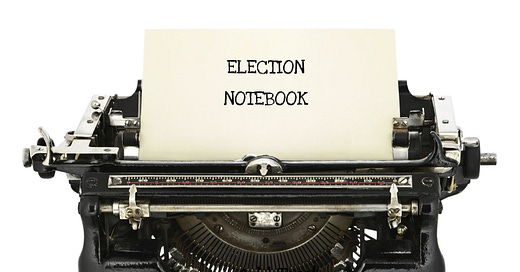It's All Up to the Voters Now
Arguments for why either Trump or Harris might win ... and other Election Day musings
As polls close in the first states, everyone is wondering: Is this going to be the closest presidential race of our lifetimes, or is there going to be a late break in the vote that gives one candidate a comfortable victory? Either scenario is plausible.
Below, I put together a short “point-counterpoint” comparison of why you’d rather be either Donald Trump or Kamala Harris today, along with a few other Election Day musings.
No one has any idea what is going to happen
Nate Silver ran 80,000 simulations (!) of the election. This is what his model came up with:
Kamala Harris won in 40,012 (50.015%) cases. She did not win in 39,988 simulations (49.985%). Of those, 39,718 were outright wins for Donald Trump and the remainder (270 simulations) were exact 269-269 Electoral College ties.Meanwhile, in 538’s simulations, Harris wins 50 times out of 100 and Trump wins 49 times.
And the Washington Post had eight columnists predict the outcome. Four predicted a Harris win, four predicted a Trump win.
So, uh, one candidate has a 50.1% chance to win, and the other has a 49.9% chance? Yes, a coin flip.
Three scenarios: Would you rather be Trump or Harris today?
Here are three arguments you could make for either candidate. They all seem to balance each other out, which is why no one knows which way this election is going.
One
You’d rather be Trump because he consistently outperformed his polling averages in both 2016 and 2020. The 2024 contest is the best his polls have looked in any of his elections, so if he outperforms them again he’s likely headed to a comfortable win.
You’d rather be Harris because Trump has never shown the ability to get above 47% or so in a national election, nor to win the popular vote. Without drawing the right cards in the Electoral College, he’s had trouble prevailing. And his polling performance this year might be due to how pollsters are now weighting the data to avoid missing Trump voters again.
Two
You’d rather be Trump because he has a strong floor, and his supporters are passionate about turning out for him. So, in this election, he has targeted low propensity male voters in order to increase his floor. And the race closed with Elon Musk exhorting men to vote, and with Joe Rogan, probably the country’s most popular podcast host with men, endorsing Trump.
You’d rather be Harris because she is broadening her coalition in a different way, making gains with moderate Republicans, such as Nikki Haley supporters. Moreover, women traditionally vote in higher numbers than men, and they appear to be more motivated than usual this cycle, with Harris also gaining ground among older and independent women.
Three
You’d rather be Trump because the early mail-in vote has been very good for Republicans. In some places, the rural Republican vote has outdistanced the traditionally strong Democratic early vote from urban areas. This puts pressure on the Harris campaign to rely on its ground game to turn out supporters on Election Day.
You’d rather be Harris because the early vote has also shown a high return from unaffiliated voters, who seem to breaking late for Harris, and from female voters, who are outpacing the male vote by about 10% in swing states. This puts pressure on the Trump campaign to turn out lower propensity voters on Election Day, with a campaign that put considerably fewer resources into building a ground game.
Choose your scenario. We’ll eventually find out which ones are correct.
Where have all the landslides gone?

In 1984, Jeanne Kirkpatrick gave what is now a famous speech at the Republican convention. The “Blame America First” address. Kirkpatrick was a longtime Democrat who switched to the Republican party in the 1980s and, in her speech, she excoriated Democrats for being weak on foreign policy. (You can see the speech here.)
Kirkpatrick’s talk was a sensation because it was symbolic of Democrats who were then moving to the GOP. They became known to history as Reagan Democrats and were instrumental in helping Reagan win 489 electoral votes in 1980, and 525 in 1984.
It used to be that convincing presidential wins happened with some regularity in American politics. Franklin Roosevelt had 432 to 523 electoral votes in four different elections between 1932 and 1944, Lyndon Johnson racked up 486 in 1964, and Richard Nixon topped that with 520 in 1972.
Sometimes these results were due to a shifting political alignment, as with FDR and Reagan. Sometimes it was a one-time thing (i.e., Johnson’s and Nixon’s parties each lost their next elections) because the opposing candidate was seen as unacceptable to the wider electorate. But the point is, American voters were accustomed to crossing traditional party lines if they felt one candidate or party wasn’t the best choice.
That is no longer the case. Perhaps we’ll be surprised by the results tonight (see: the Des Moines Register poll in Iowa), but the polling so far indicates this is very much a 50-50 nation. Which is surprising when one considers, first, the threat that many people believe Trump poses to democracy. And second, when you look at the number of Republicans who have come out for Harris.
Even incumbent GOP Governor Phil Scott of Vermont announced today he was voting for Harris because, as he said, “I came to the conclusion that I had to put country over party.” Harris today has the broadest coalition in decades, with everyone from Dick Cheney to Bernie Sanders supporting her.
The only analogous situation in recent history to these Harris Republicans, actually, is that of the Reagan Democrats four decades ago. But while that 1980s movement led to an electoral landslide, this one may not do much more than help Harris eke out a slim victory, if that.
The culprit in all this is the rise of negative partisanship, a recent phenomenon in which voters see everything as a binary choice and are mostly fueled by dislike for the opposition. This means that even if voters are uncomfortable with their own candidate they simply can’t bring themselves to vote for another party. They’re conditioned now to believe the opposition is almost universally unacceptable.
The Economist recently did a study of negative partisanship, which they titled “Anti-Politics is Eating the West,” which is an apt description of how this trend has corroded American politics. The polarization in the country is as bad as any time in U.S. history, save for the Civil War era.
Anyway, just some food for thought.
Here we go. Soon we’ll find out what American voters think about all this.




